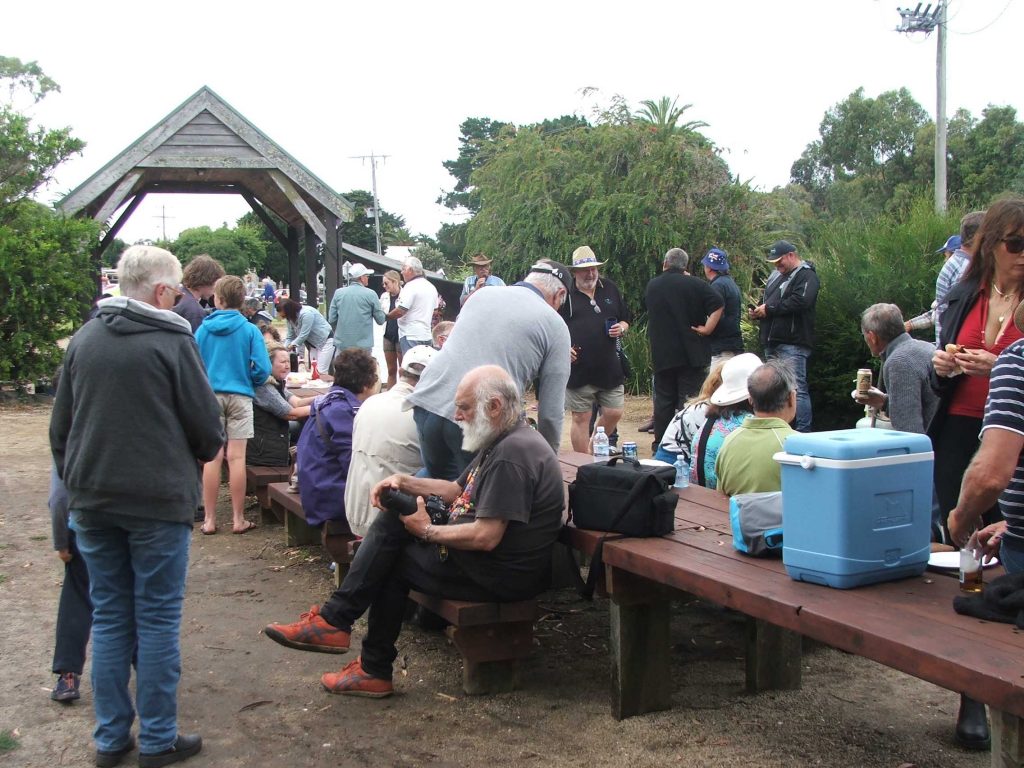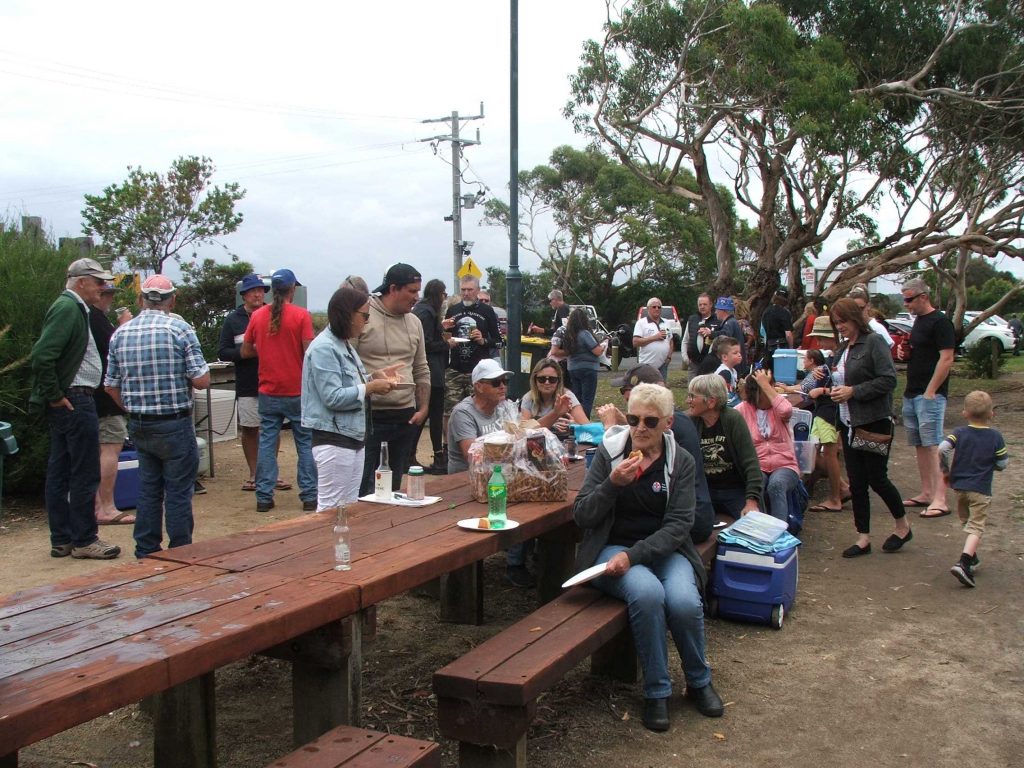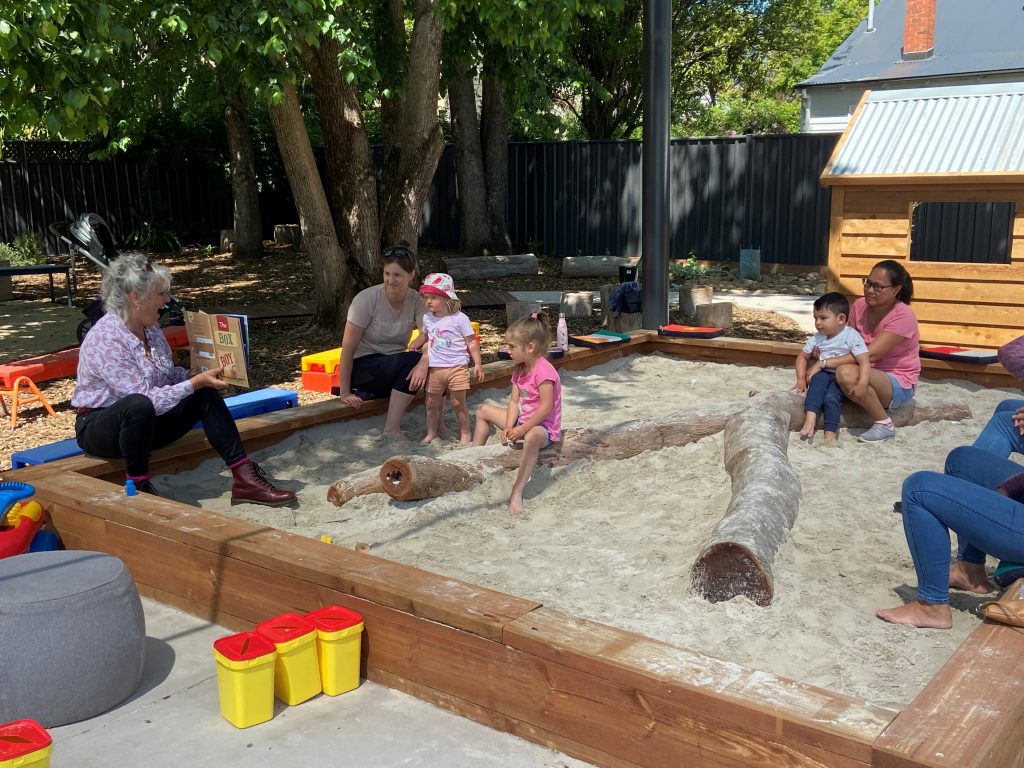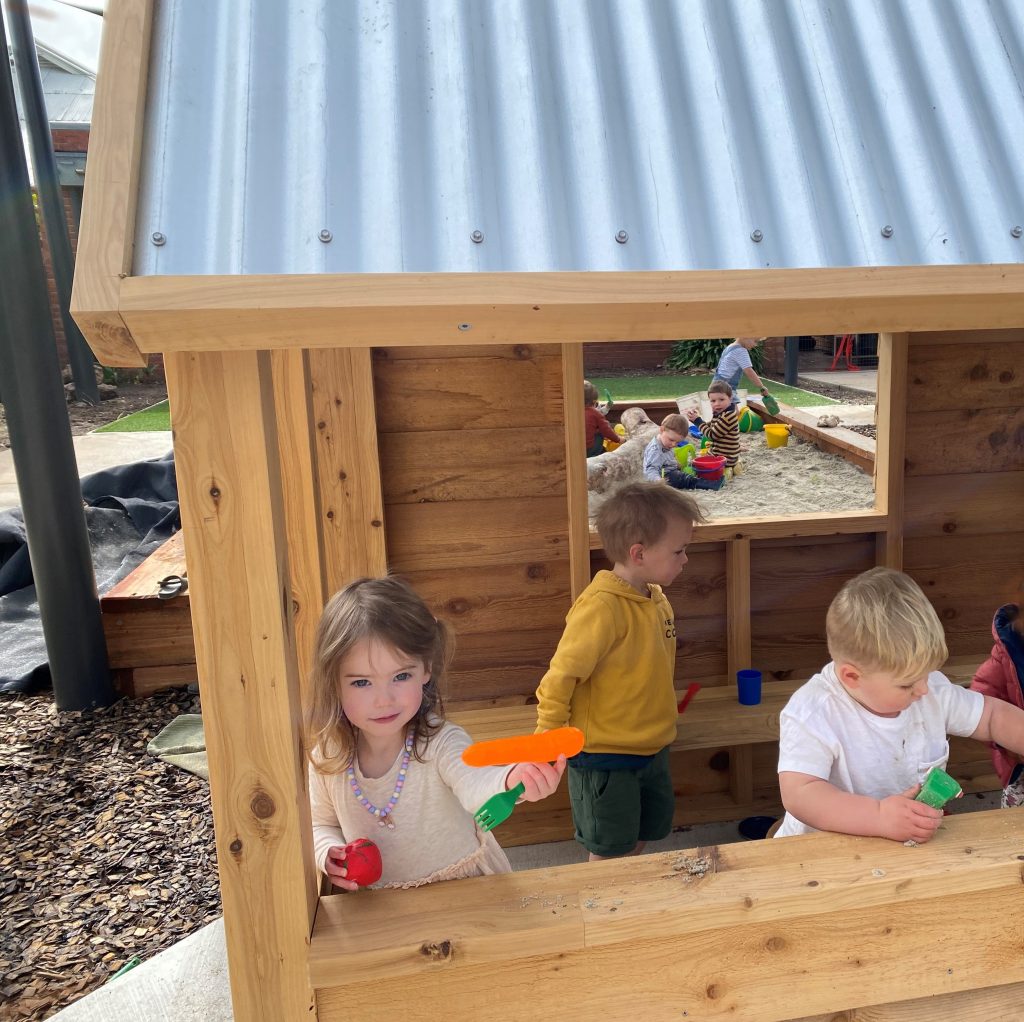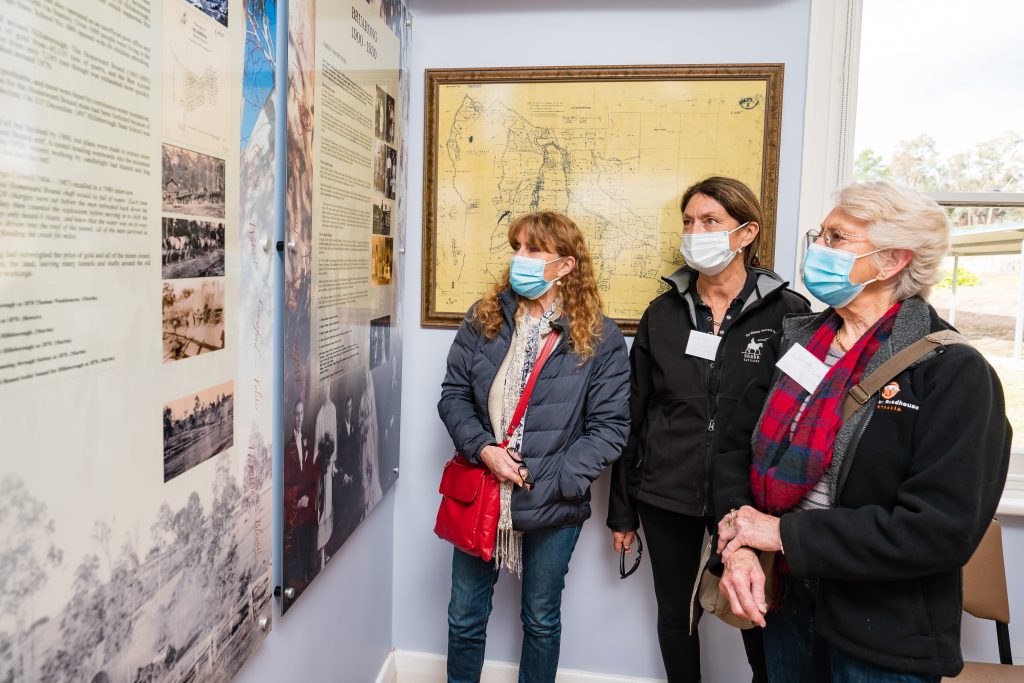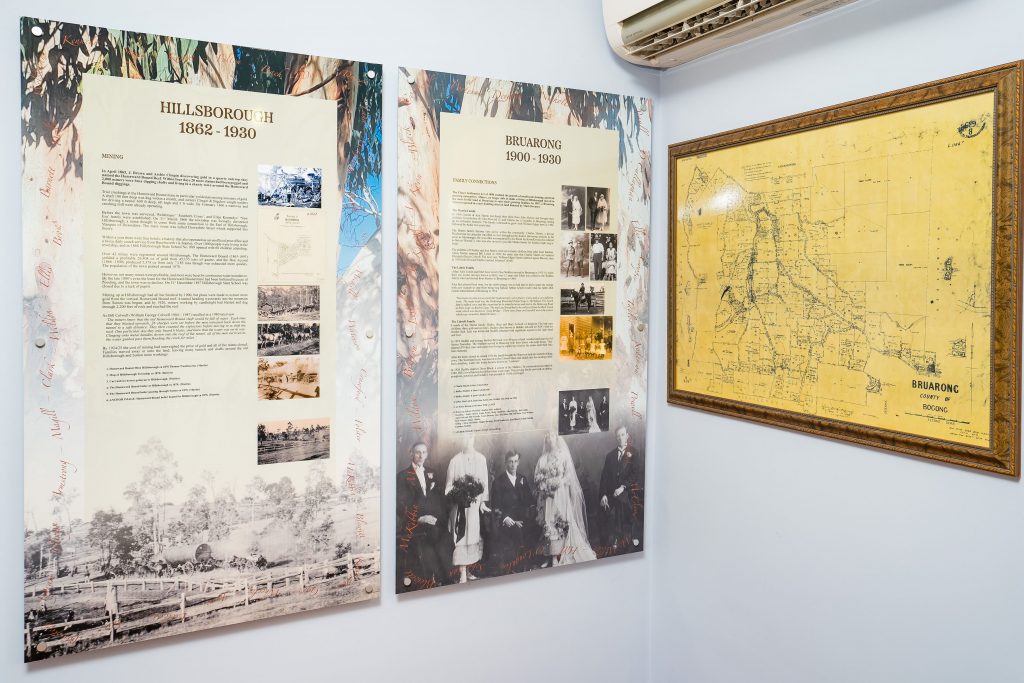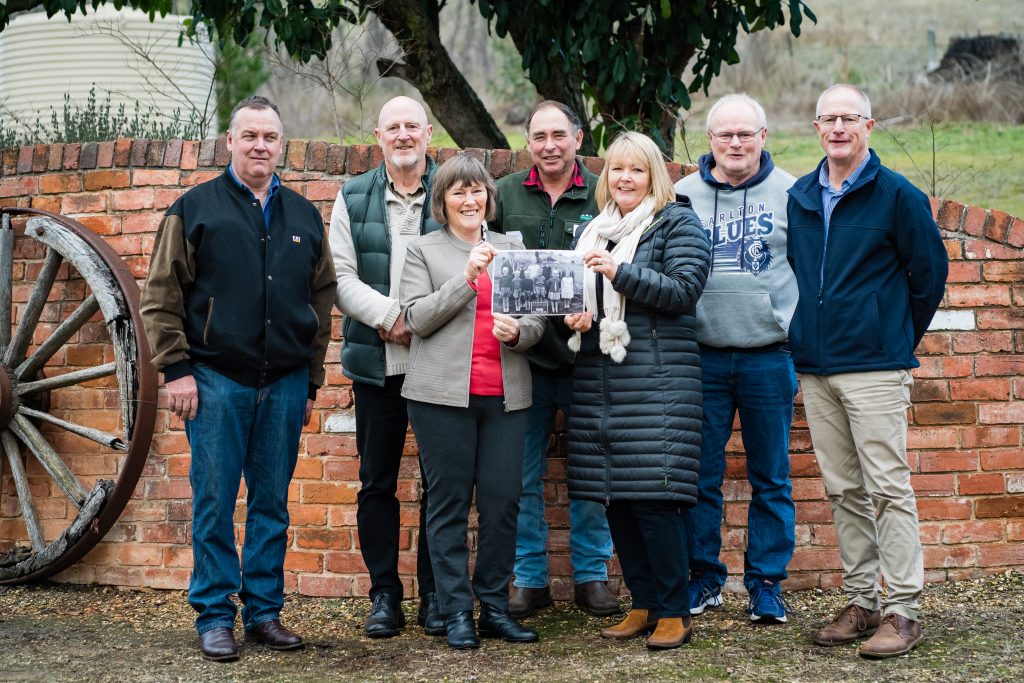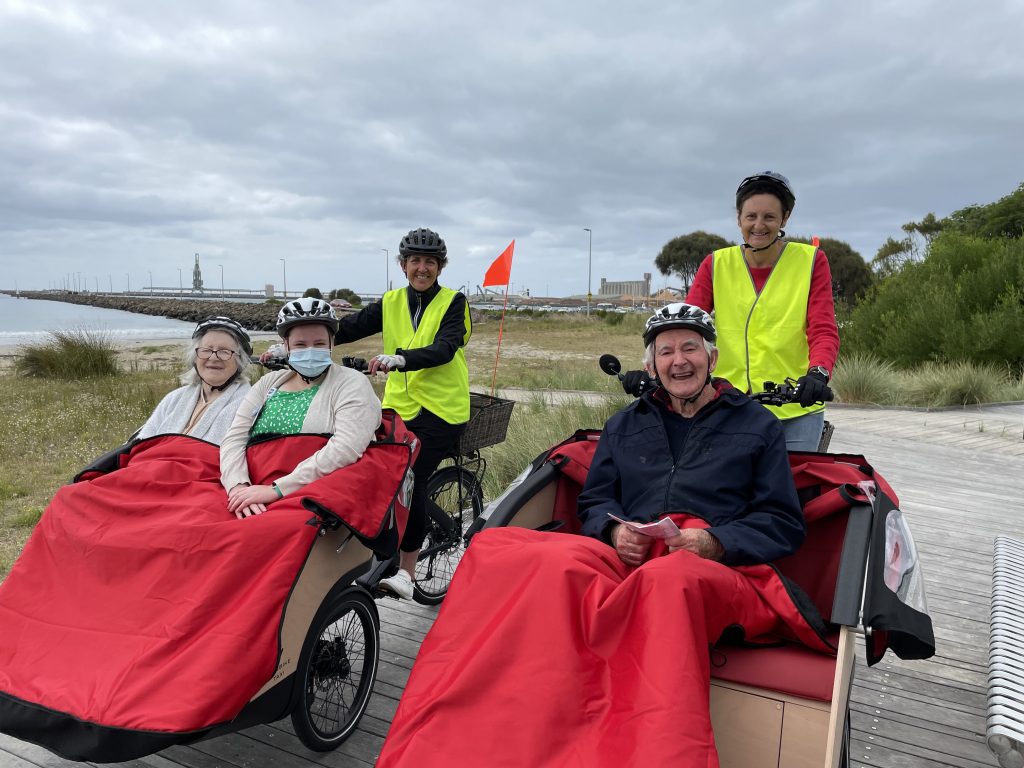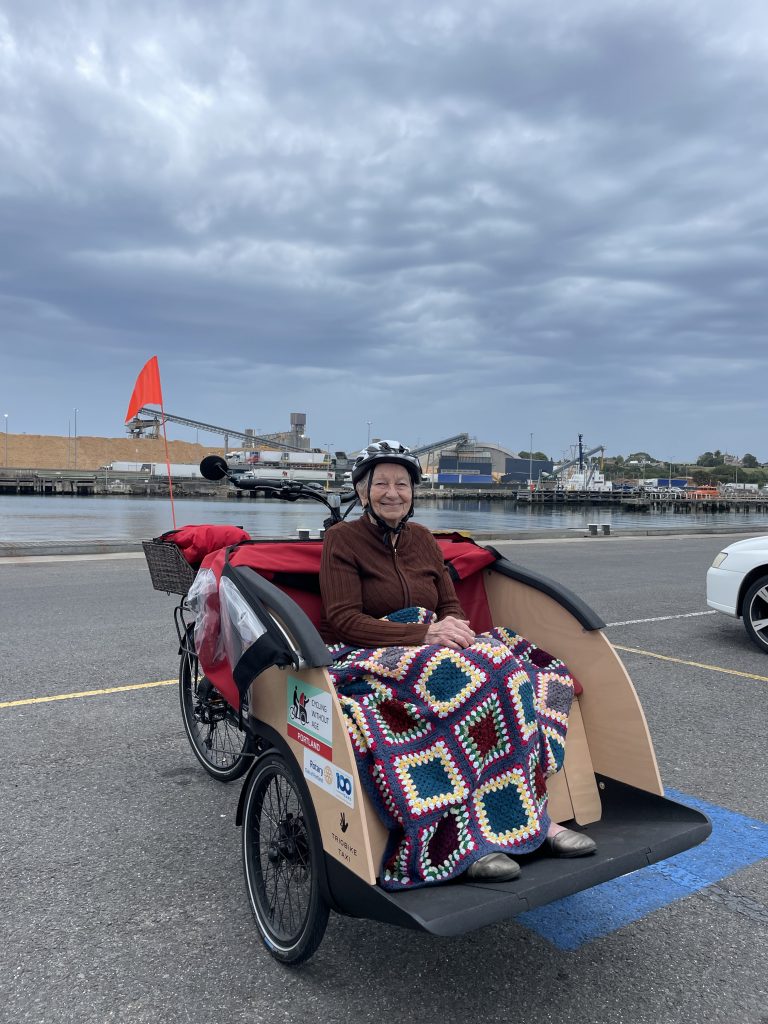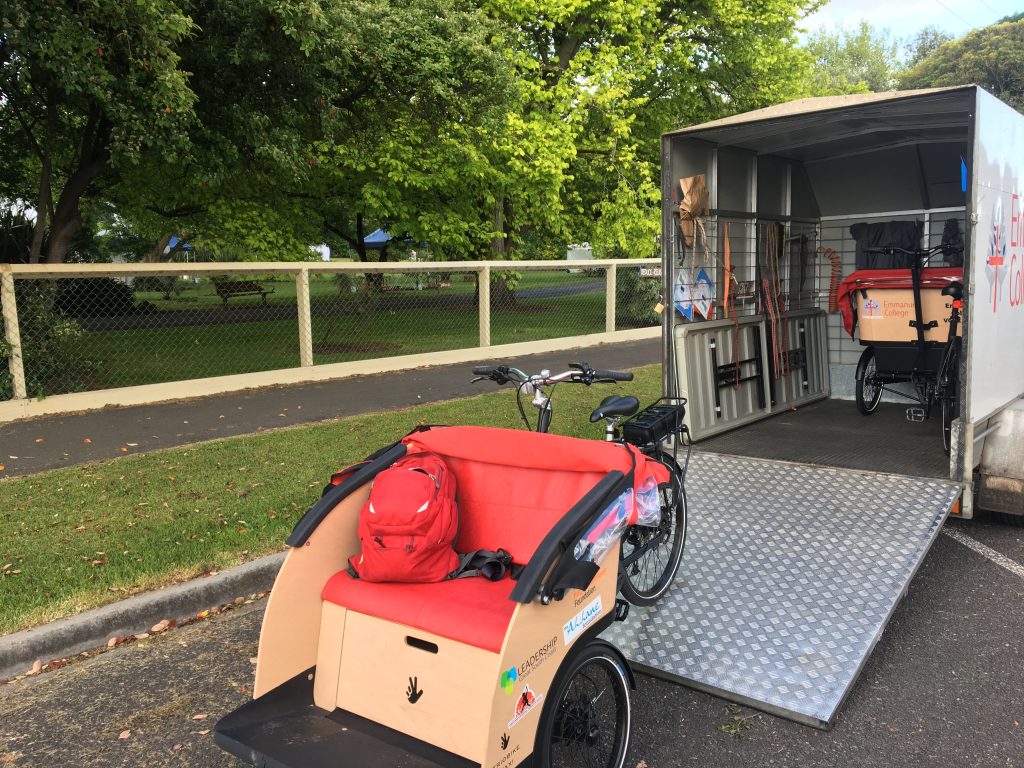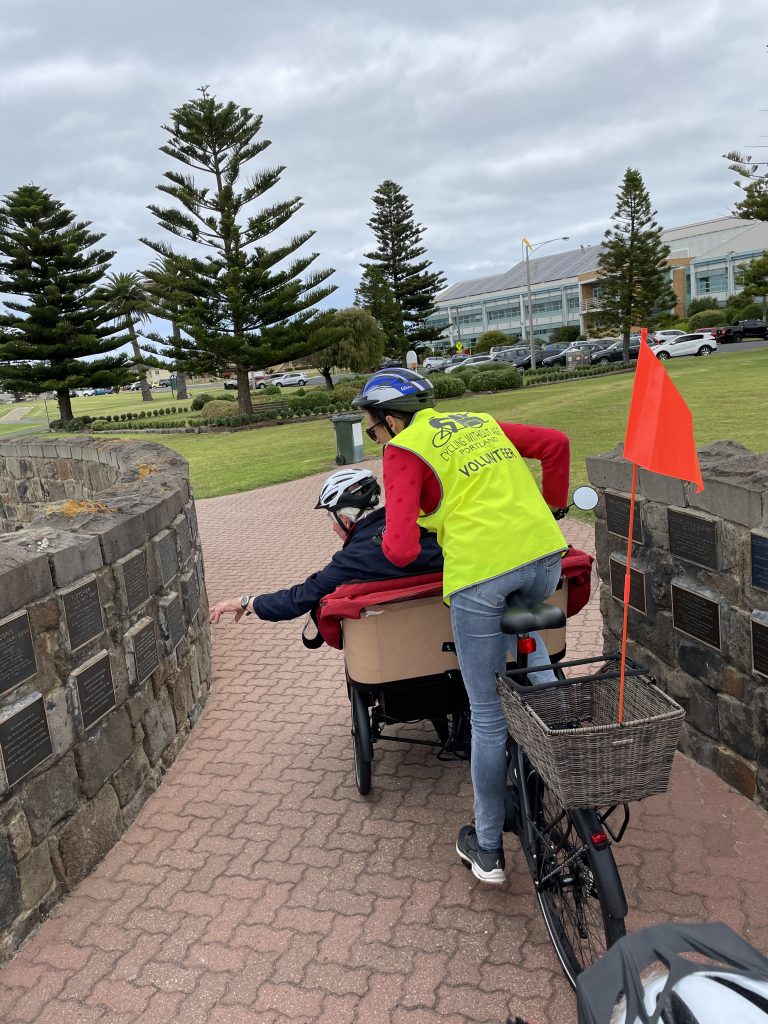Foundation for Rural & Regional Renewal (FRRR)
Grants up to $20,000 available for recovery projects
Local community groups and not-for-profits in rural Victorian communities impacted by 2022-23 floods are encouraged to apply for grants up to $20,000 for projects that will support their community’s recovery.
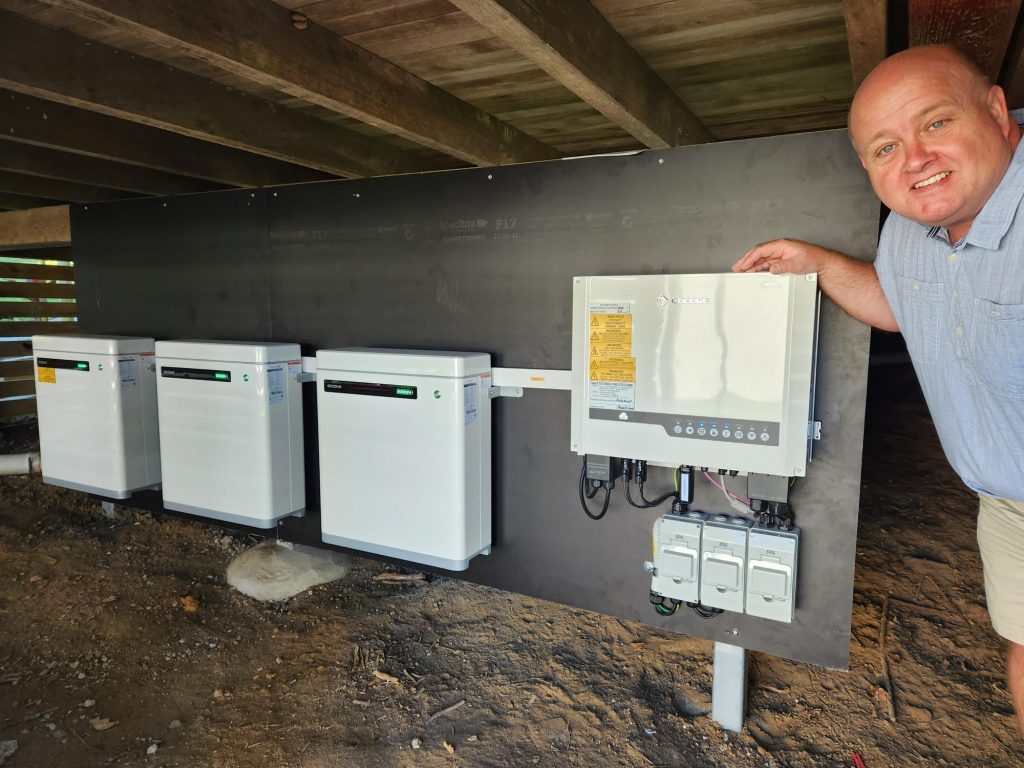
In partnership with Suncorp and AAMI, FRRR is offering $300,000 for initiatives that build resilience and support medium to long-term recovery of communities affected by the flooding and storms that occurred in specified LGA’s between 6 October 2022 and 13 January 2023.
Funded through the Rebuilding Futures program, these responsive grants are available for proactive initiatives that are community-led.
Nina O’Brien, FRRR’s Disaster Resilience & Recovery Lead, said that extreme weather events, like the flooding and storms experienced by rural Victorian regions late last year, affect every community member, especially those who are most vulnerable and rely on community organisations for support.
“Different groups within the community, such as those living with disability, homelessness or who speak English as a second language, will be impacted differently, and as such, will have their own needs in terms of building resilience and how they can prepare for future disaster events.
“We encourage community groups to be inclusive with their initiative ideas and consider how their project can support community members from all nationalities, socio-economic and cultural backgrounds.
“We also encourage community groups to think outside the box when it comes to infrastructure and equipment projects by considering resilient materials and harnessing clever use of design to decrease future impacts of natural disasters,” Ms O’Brien said.
Suncorp’s Group Executive People, Culture & Advocacy, Fiona Thompson, said that natural disasters, such as the Victorian floods, have devastating impacts that are complex, context-driven and long-lasting.
“This is the third disaster-affected region that we’ve supported through this program over the last couple of years, so we know the impacts in each place are different. One thing is always the same though; local people are best placed to know what the needs and priorities of their community, especially following a natural disaster event.
“Thanks to our partnership with FRRR, we’re pleased to be able to provide flexible funding that means communities can determine how best to address the medium to long-term recovery, resilience and preparedness needs and priorities for their region,” Ms Thompson said.
A Grantseeker Workshop, including a Q&A, on the Rebuilding Future’s grant program will be held online from 12 – 1pm AEST, Wednesday 7 June 2023. Register for the Grantseeker Workshop here.
Applications close 6 July 2023.
Previous projects funded through the Rebuilding Futures program include:
- During the floods in February 2022, Mooloolah Valley, QLD, experienced intermittent loss of power that impacted the community’s access to lighting, hot water and technology. To help the community prepare for future disaster events, the Mooloolah Valley Community Association Inc used a $25,000 grant to purchase and install three batteries that can be used to supply power to the region. The batteries are able to store energy from the Centre’s existing solar panels. The grant also funded fencing to ensure the new batteries are stored safely and securely. Thanks to the community’s resilience and preparedness, the batteries were able to keep the community’s power running during the two electricity outages that Mooloolah Valley has experienced since the batteries were installed.
- Following the NSW and QLD floods in 2021, Mission Australia and Mid Coast 4 Kids partnered to respond to child and youth wellbeing across the Mid Coast region. The partners used a $10,811 grant to deliver training to local community service, health and education professionals, volunteers and parents. Their aim was to ensure they were equipped with the skills to have quality conversations and build resilience to respond to the wellbeing needs of children, young people and their families.
For more information about which regions are eligible, the type of projects that can be funded, and to register for the Grantseeker Workshop, visit our Rebuilding Futures webpage.
Earlier this year, one of FRRR’s long-term supporters, the Pratt Foundation, made a generous $250,000 donation to FRRR’s Flood Recovery Appeal to support Victorian areas affected by the flood.
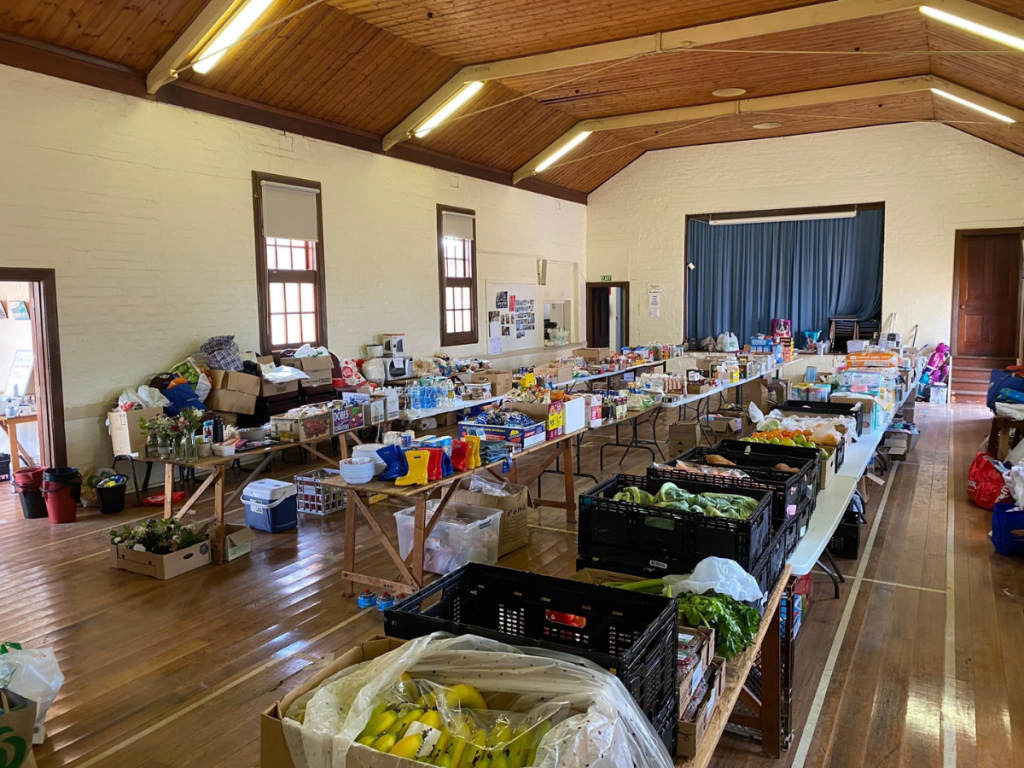
Over the last two months, FRRR has leveraged its networks to make ‘quick response’ grants to 23 community groups and not-for-profit (NFP) organisations in flood-affected areas of Victoria. The grants are helping to meet short-term recovery needs and help communities as they begin to get up and running again following the flooding events of this past summer.
Anthony Pratt, Chairman of the Pratt Foundation, said the work of the flood-affected not-for-profit groups is admirable and critical to recovery.
“The organisations that have benefitted from these grants are key to the recovery of these communities following the floods. We are very happy to be able to assist their efforts to provide support to the most vulnerable in the community, by providing the resources they need to start building back,” Mr Pratt said.
Sarah Matthee, FRRR’s Acting CEO, said the projects receiving funding will be crucial to the recovery process in the coming months.
“The Pratt Foundation’s generous support has enabled FRRR to work closely with communities across flood-impacted areas of Victoria to identify organisations who are playing key roles in recovery, by responding to local priorities.
“These grants are supporting a range of projects, including many neighbourhood and community houses, who are acting as key hubs to support community members, particularly vulnerable people. The funding will also help communities to build capacity, through activities such as mental health first aid training, so that they are better able to navigate disaster response and recovery challenges that they are likely to face in the coming months. Other grants focus on the repair of critical infrastructure, such as local community radio facilities, and providing immediate aid, such as distributing insect repellent to reduce the risks of mosquito borne diseases.
“This funding will not only help to address short-term challenges these flood-impacted communities are facing, but will also contribute to the long-term social and economic recovery of these areas,” Ms Matthee said.
Three of the 23 projects funded are listed below:
- Rochester Community House Inc – Rochester, VIC – Rochester Community Flood Recovery – Boost ability of a community house to provide emergency assistance through additional staffing hours. $10,000.
- International Association for Psychiatric Nurses – Shepparton, VIC – Mental Health First Aid Training – Support community recovery from flood events with mental health first aid training to build awareness, healing and recovery skills. $10,000.
- Gnarly Neighbours – Seymour, VIC – Supporting Youth Programs – Boost organisational capacity and support young people impacted by flood events to access youth programs. $10,000.
The full list of projects funded can be accessed on the FRRR website.
The Prepare & Recover stream of the SRC program is accepting applications to support disaster-impacted communities. More information is available at https://frrr.org.au/src-prepare-recover/.
The full list of grant recipients and their projects are below.
| Organisation | Project | Location | Grant | |||
|---|---|---|---|---|---|---|
| VICTORIA | ||||||
| Bonnie Doon Football Club Inc | Drainage at the Reserve | Bonnie Doon | $8,072 | |||
| Bridgewater Recreation and Public Reserve Committee Incorporated | Cleaning after Blaze Aid Boost volunteer capacity and community recovery through purchasing new equipment and cleaning a BlazeAid staging ground. | Bridgewater | $2,157 | |||
| Cohuna Neighbourhood House Incorporated | Future Printing Project Enhance Cohuna Neighbourhood House’s provision of information and support to flood-impacted community members by purchasing a multi-functional printer / photocopier. | Cohuna | $10,000 | |||
| Echuca Historical Society Incorporated | Two Men in a Boat Exhibition and Riverlife & Romance: a Tribute to "All The Rivers Run" Film Foster social reconnection and recovery in a flood-impacted region through free community events at the Echuca Museum. | Echuca | $2,250 | |||
| Echuca Neighbourhood House Inc | ENH Flood Recovery Program Strengthen a Neighbourhood House's capacity to deliver emergency response and support community recovery from floods through the provision of material aid. | Echuca | $10,000 | |||
| Gnarly Neighbours | A Roof for Gnarly Neighbours Boost organisational capacity and support young people impacted by flood events to access youth programs by covering rental costs to temporarily house equipment and provide a space resume regular programs and workshops. | Seymour | $10,000 | |||
| Greater Shepparton Foundation Limited | Mosquito Borne Disease Education and Intervention Project Supporting flood recovery and health promotion in multicultural communities through developing educational material and distributing insect repellent to reduce the risks of mosquito borne diseases. | Shepparton | $10,000 | |||
| Heathcote Community House Incorporated | Heathcote Community Flood Recovery & Support Boost Heathcote Community House’s capacity to deliver targeted support and programs for flood-impacted community members by funding community mental health programs (particularly for vulnerable and elderly residents) and extended hours to meet community need. | Heathcote | $10,000 | |||
| Indigo Shire Council | FLOOD RECOVERY EXPO "Are You Bogged Mate!" Strengthen recovery and wellbeing by holding an information and mental health expo for the agricultural sector in the Indigo Shire. | Rutherglen | $7,560 | |||
| International Association for Psychiatric Nurses | Mental Health First Aid Training Support community recovery from flood events with mental health first aid training to build awareness, healing and recovery skills. | Shepparton | $10,000 | |||
| Lockington Recreation Reserve Incorporated | Lockington and Surrounding Districts: Flood Recovery Assistance Sustain volunteer capacity and support community recovery through cleaning and covering utility costs at a BlazeAid staging ground. | Rochester | $3,000 | |||
| Mooroopna Education and Activity Centre Inc | Strengthening Mooroopna Education and Activity (MEAC) Strengthen community resilience and recovery by extending the delivery of community hub activities and programs for flood-impacted community members. | Mooroopna | $10,000 | |||
| Nathalia & District Community Assoc Inc | Safe Streetscape Strengthen Nathalia Community House’s support for flood-impacted community members through upgrades to food relief storage, paths and seating areas. | Nathalia | $7,377 | |||
| Neighbourhood House Murchison (VIC) Inc | Murchison Flood Recovery Programs and Activities Foster community connectedness and recovery in flood-impacted Murchison through supporting Murchison Neighbourhood House activities and programs. | Murchison | $10,000 | |||
| Nexus Primary Health | Seymour Food Relief Collaborative Improve health and wellbeing outcomes for flood-impacted community members by supporting local food relief. | Seymour | $10,000 | |||
| Raywood Recreation Reserve Committee of Management | Replacement Mower for our Six Acre Recreation Reserve Increase the capacity and capability of volunteers to support preparedness and recovery from natural disasters through replacing a flood damaged mower. | Raywood | $10,000 | |||
| RDA Seymour Riding for the Disabled Association of Victoria Inc | Feed the RDA Horses Boost the capacity of a disability organisation impacted by severe flooding by subsidising operational costs for the upkeep of horses for a riding for the disabled program. | Seymour | $10,000 | |||
| Rochester Agricultural and Pastoral Association Inc | 2023 Rochester Show Enhance regional recovery and promote community resilience by providing entertainment at the annual agricultural show to bring people together post-disaster. | Rochester | $10,000 | |||
| Rochester Community House Inc | Rochester Community Flood Recovery Boost ability of a community house to provide emergency assistance through additional staffing hours to support flood recovery. | Rochester | $10,000 | |||
| Rochester Secondary College | Anglesea or Bust! Foster social connection and enhance young people's recovery from flooding events by subsidising a school camp. | Rochester | $10,000 | |||
| Seymour Agricultural and Pastoral Society Incorporated | Flood Recovery Strengthen volunteer capacity to run upcoming annual events and support community recovery from a natural disaster by purchasing furniture and equipment. | Seymour | $9,584 | |||
| Seymour Performers' Workshop Inc | Seymour Performers Workshop Flood Recovery Supporting local arts events and community recovery through repairing and replacing flood-damaged sets and equipment at a local performance group. | Seymour | $10,000 | |||
| Seymour Puckapunyal Community Radio Incorporated | Flood Rebuild Strengthening volunteer capacity and community connection and information sharing through replacing flood-damaged community radio broadcasting equipment. | Seymour | $10,000 | |||
The Grants Only Group (GOG ) is a vibrant group of older and younger community members committed to helping community groups in their area succeed with their grant applications. Primarily focused on the Lower Tarwin Valley District in Victoria, dairy farming is an integral part of these communities and the surrounding areas.
While working with many community groups to raise funds for local events and activities, GOG frequently saw groups hiring sound systems. This gave them a bright idea. In 2020, the group successfully applied for a $4,838 Gardiner Dairy Foundation Community Grant to purchase a Community PA System. The grant allowed them to purchase four speakers, tripods and microphones that could be used by organisations and businesses in the townships of Venus Bay, Tarwin Lower and Walkerville.
Thirty-seven organisations in the area were emailed about the available equipment, who to contact and how they could place a booking for use. Since purchasing the Sound System, there has been high demand. So far, the Community Luncheon Group, Tarwin District Auto & Machinery Club’s Australia Day event, which raises funds for dementia, and Tarwin Mechanics Institute Hall’s Anzac Day service have all had a turn with the new gear.
Some clever thinking by GOG has created a practical shared community asset that reduces costs and time for the running of local community activities.
GOG President Wendy Don said “By strengthening our community, we are building the foundations for the sustainability of Dairy farming in the Lower Tarwin Valley. All the locals and the many tourists that visit these beautiful Gippsland Dairy Communities will benefit for years to come.”
More Black Saturday funding for community-led initiatives
FRRR is inviting applications from local not-for-profit groups for grants to support ongoing recovery efforts following the Black Saturday bushfires in 2009.
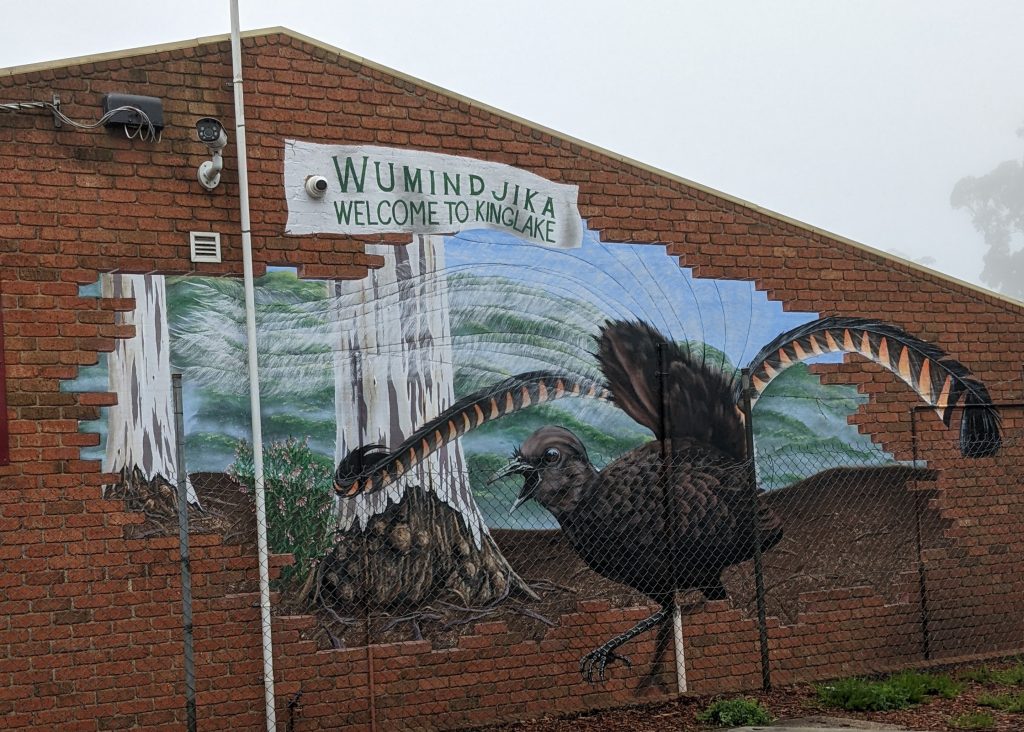
Thanks to the Victorian Bushfire Appeal Fund there is $180,000 available to not-for-profit groups in Kinglake, Kinglake Central, Kinglake West, Pheasant Creek, Toolangi and Flowerdale. Projects identified through the Kinglake Ranges and Flowerdale Conversations for Change talks and Toolangi-Castella community plans will be prioritised.
Nina O’Brien, FRRR’s Disaster Resilience and Recovery Lead, said that FRRR is keen to get this last tranche of funding out into the community to fund community-strengthening and resilience-building projects that align to the VBAF program’s intent.
“We had some great projects come forward at the end of last year and it’s pleasing to see them starting to kick off. However, not all the applications we had last year fit with the guidelines of the program and the intent of the Victorian Bushfire Appeal Funds program, hence we still have some funding available.
“Applications must be for new projects that directly assist those individuals and communities that were affected by the 2009 fires and need respond directly to a specific hardship or distress caused by the bushfires. Projects also need to benefit the wider community and so applications should demonstrate community support and the involvement of a range of community groups or representatives,” Ms O’Brien explained.
Approximately $180,000 is available for distribution via grants of up to $25,000, or higher by exception. Applications requesting more than $25,000 must be discussed with FRRR prior to submission. Note too that projects relating to government-owned infrastructure and/or sporting organisations must be discussed with FRRR before they are lodged.
Applications close Wednesday 3 May, 2023, at 5pm AEST, with successful applicants announced in August 2023. For more information and the guidelines, visit https://frrr.org.au/grants-for-resilience-wellness-kinglake/ . Email recovery@frrr.org.au or call 1800 170 020.
To date, through GR&W Kinglake, FRRR has awarded over $1.1M for 35 projects to local groups in the Kinglake Ranges. Any community impacted by 2009 bushfires and not located in Kinglake Ranges region can apply for support through FRRR’s Strengthening Rural Communities program.
While it had a short life as a gold mining area, the Tanjil Valley in eastern Victoria is a long established dairy farming area with a keen local History Gatherer’s Group.
The Group brings together older people from across the district to share family stories and evoke long forgotten memories of farming techniques and innovations. These evenings, held at the Hill End Community Centre (HECC), are very popular and the social interaction contributes to a strong sense of community belonging and connectedness.
As the elders in the settler families age, their families, as well as more recent community members, were keen to preserve and capture their local history. Some short stories have been shared in the free monthly ‘Hill End Herald’ community newsletter, which is distributed to almost 500 families throughout the Tanjil Valley. The community always responds positively and people urged the Group to collate their histories into book form. So, some local historians got to work, extending and gathering these stories into a manuscript.
With a $3,400 grant from the Gardiner Dairy Foundation Community grants program, the History Talks – Settlers’ Histories A Generation On was collated and published.
By all accounts, the collation of the book was a monumental effort! It hardly needs saying that COVID presented a major challenge, especially as the contributors to the book were mostly older community members for whom the risks of COVID were great. The authors themselves are older people with significant health challenges, who live in different towns, yet these two women determinedly worked together to get the project finished. All the final checks and corrections were done by phone or by emails and, as the two authors also live in different towns, they had to do all their final editing in the same way.
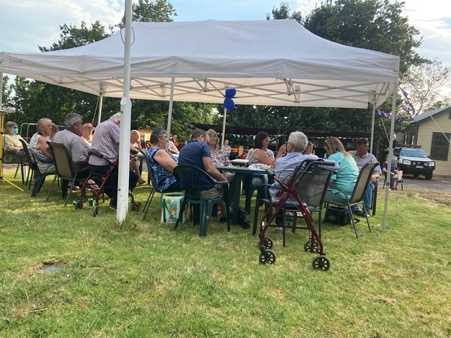
The book launch occurred at the Australia Day 2022 community event to great acclaim. Despite COVID risks and stormy weather, which did affect numbers at the event, nearly 80 copies were sold on the night. The book, which features stories from more than 30 district families, and cover art by well-known local artist Liz Bowley, has been featured in The Hill End Herald, and mostly sold through word of mouth. The book has almost sold out in the four months since it was launched and the group is planning a re-print.
The authors generously handed over the ISBN and all the books to the Community Centre to sell and to use all the profits for the benefit of the community centre.
In acquitting their grant, Hill End Community Inc. told us how proud they are of the authors’ efforts to push through the restrictions of COVID to produce the book.
“We are also proud of the commitment of the contributing farmers and their families to provide information and search out their historical family photos. We are proud too of the contribution the book has, and continues to make, in documenting the history of the settler families of the community and sharing that with the broader community and newer community members.”
For the elderly members of the monthly History Gatherers Group, the book project reconnected them after two years of being shut down by COVID restrictions and fears. Tanjil Valley Settlers’ History will ensure that the farming histories of this district will not be lost as settler families age but will be preserved, celebrated and shared for years to come.
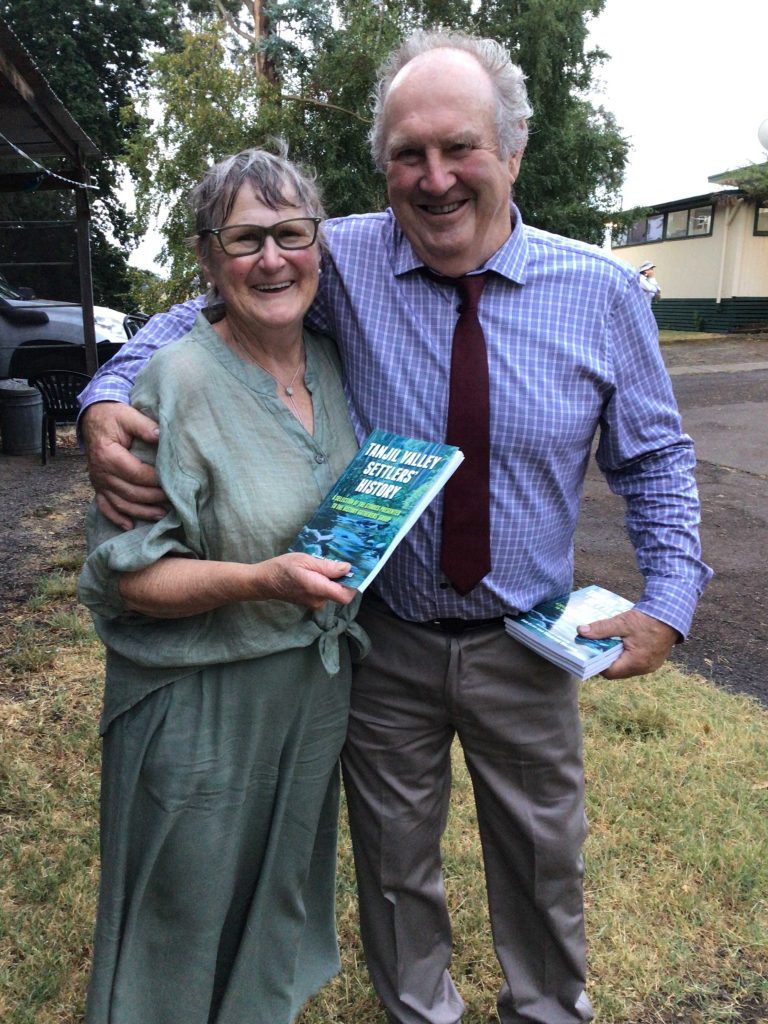 Book authors Mrs Christina Williams with Mr Lu Cervi who conducted the book launch.
Book authors Mrs Christina Williams with Mr Lu Cervi who conducted the book launch.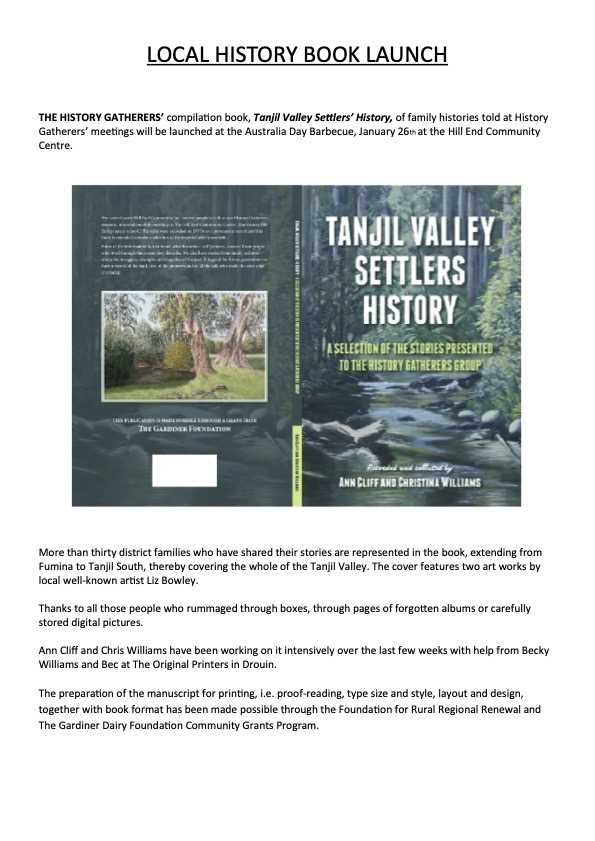 Flyer advertising the book launch.
Flyer advertising the book launch.
In Victoria’s Alpine Valley shire, Alpine Radio is a vital and much-loved way for the community to stay safe and connected. It’s run by Kiewa Valley Community Radio Association Inc, a not-for-profit community radio station located in Mount Beauty in north-east Victoria.
Alpine Radio broadcasts local information into the Kiewa and Ovens Valleys and Harrietville about events and activities, along with music programs and local interviews. It is also an official Emergency Services broadcaster for the region.
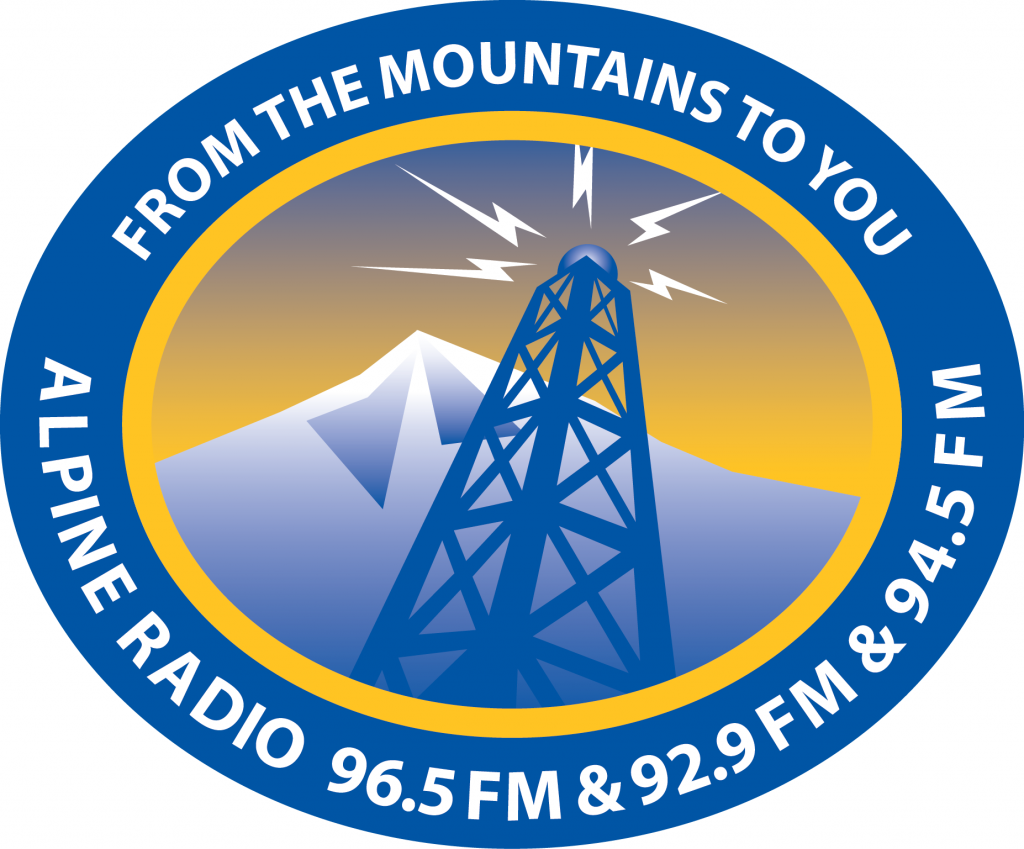
Like many of the organisations that responded to our 2021 Heartbeat of Rural Australia study, the station receives most of its funding from local businesses and benefactors. However, the downturn in tourism following the 2020 fires resulted in a loss of income by local businesses, which was further exacerbated by the pandemic. This meant that several of the station’s supporters stopped their contributions entirely or suspended their payments.
In a bid to regain sponsors and attract new ones, Alpine Radio used a $6,000 grant from the News Corp Bushfire Recovery Fund, managed by FRRR, to bring in external expertise. A Sponsorship and Marketing Manager was engaged part-time for six months to keep in touch with current sponsors during the lockdowns. If they couldn’t pay their sponsorship fees because of the downturn in income, the business continued to be mentioned on air (free of charge) or was suspended until the business could reopen. The radio station also contacted many of the local businesses that were not necessarily sponsors but were changing their business model to offer takeaway meals and drinks, and they broadcast these changes to the listening public for free.
This strategy created a lot of goodwill within the community and, as a result, Alpine Radio signed up several new sponsors once businesses were able to open up and start getting regular income again. Previous supporters also came back on board too.
The grant helped bring financial stability to the station, which in turn enabled them to continue to employ a paid station manager. This means that Alpine Radio can continue to deliver local communications, media and play a critical role during emergencies.
The station’s President, Nicholas Brown, said that the goodwill created across the Kiewa and Ovens Valleys is what they were most proud of.
Tomorrow Today Foundation (TTF) is the community foundation for the Benalla region in Victoria. It connects people, resources and ideas to create a stronger, more resilient and prosperous rural community.
Like many community foundations, Tomorrow Today has a community fund that receives donations to their corpus, and the income generated from that investment provides grants for Benalla and district projects. In FY22, they distributed more than $89,500 in grants to groups, families and individuals across the region.
Their fundraising is supported in partnership with FRRR through a Community Foundation Fundraising Account, which enables tax-deductible donations to be received on behalf of TTF.
One of the key projects Tomorrow Today fundraises for is their Education Benalla Program (EBP) – an initiative that aims to improve educational outcomes for Benalla’s children. In FY22, they worked with over 120 local partners to run activities that give every Benalla child the chance to thrive in life.
Their transformative program aims to create systemic changes to educational, social and environmental challenges, with the overall goal of raising the education and training completion rates of Benalla’s 17-24 year olds to equal or above the Victorian average to break the self-perpetuating cycle: poor school retention leads to life-long social and economic disadvantage; and disadvantage results in poor levels of school retention. The program starts at the very beginning of the education journey, working with families from the earliest ages and stages to prepare children for school and ensure they are ’ready to learn’.
And the results are in: there is significant quantitative and qualitative evidence indicating that the initiative is having the desired impact. In the 10 year anniversary publication of the EBP released earlier this year, Tomorrow Today’s founder and former EBP Convenor Liz Chapman OAM described how the last 10 years has been ‘a wild ride’. In that time, the percentage of children deemed developmentally vulnerable on one or more domains has decreased significantly, bringing Benalla much closer to state and national averages (source: 2021 Australian Early Development Census, which measures how young children are developing in their first year of full-time school).
“If there was a Tomorrow Today in every town, the positive contribution to community, education and engagement with young people would solve most of the common problems we face. I have enormous respect for the work they do.”
Danny O’Donoghue, Executive Officer of the NE Tracks Local Learning & Employment Network in the EBP 10 year anniversary publication
You can add your support by donating securely online, or check out the Tomorrow Today Foundation website to learn more about their work. To learn more about FRRR’s Fundraising Accounts for not-for-profits and community foundations, get in touch with Jo Kemp, our Philanthropic Services Manager.
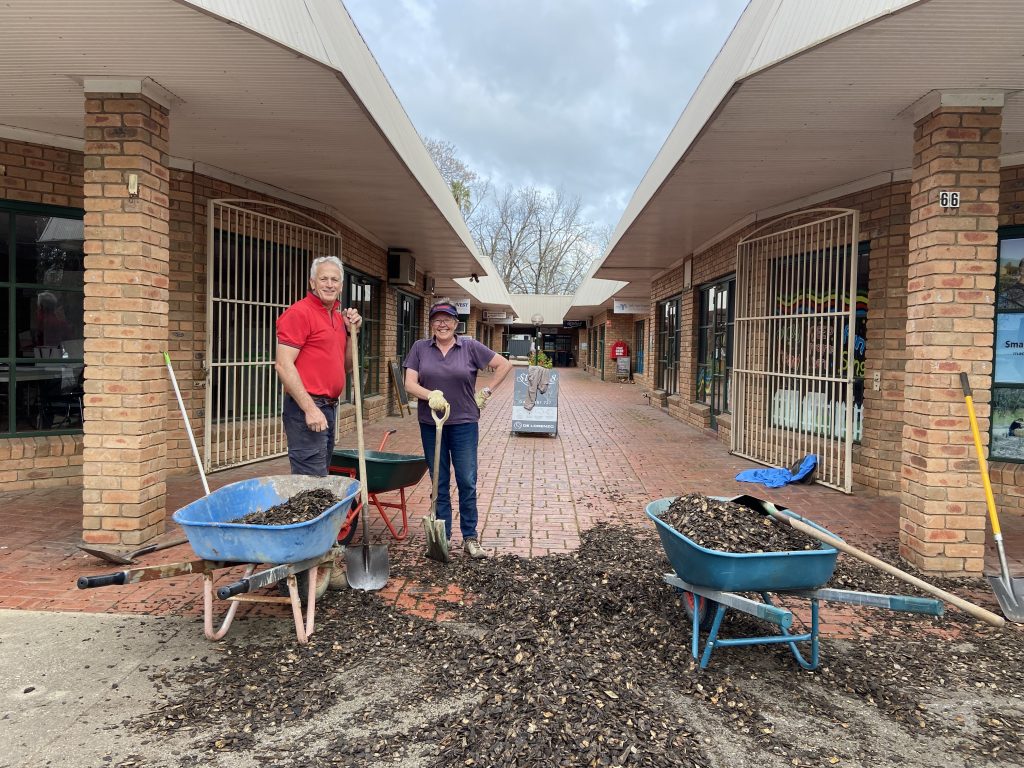
On Boonwurrung Country
The primarily agriculture-based Bass Coast community is a two-hour drive, south-east of Melbourne. It’s therefore perhaps not surprising that it’s one of the fastest growing areas in regional Victoria. Wonthaggi is the main centre, with a population of around 8,000 in the township and many more spread across neighbouring towns and hamlets. There is a significantly lower level of weekly income than the Victorian median and a lower proportion of school leavers (19%) participate in higher education compared to the state average (36%). Much of the employment is seasonal, part time or casual. This meant that COVID had a severe impact on the area, with many families falling through the gaps of the Government financial assistance packages.
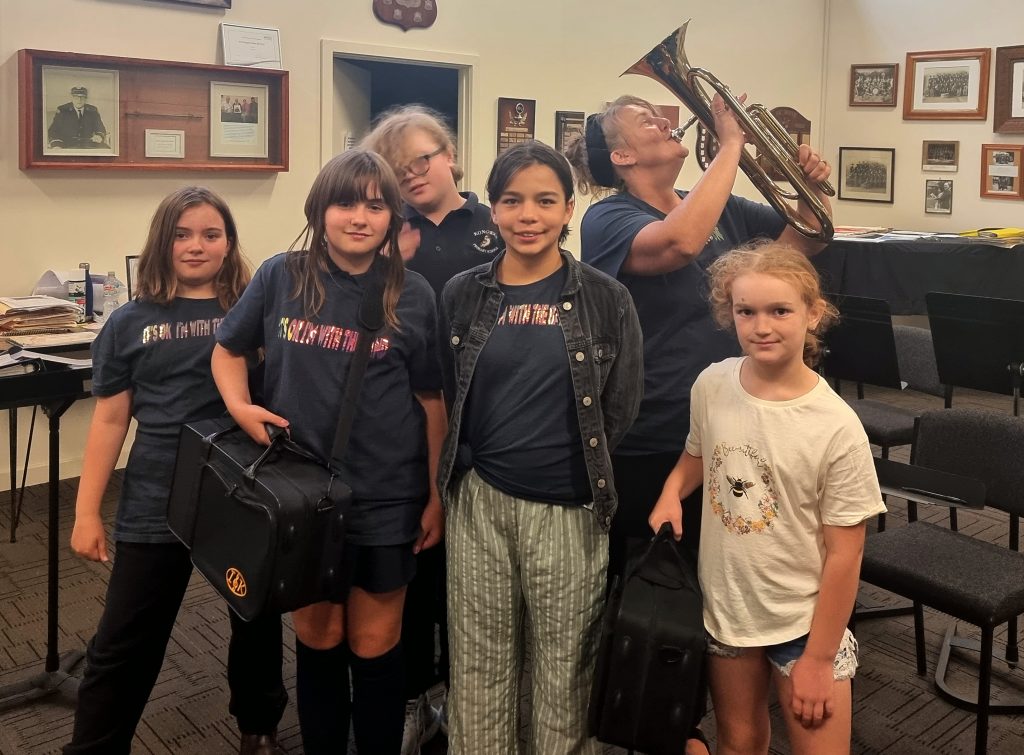
Established in 1910, Wonthaggi Citizens Band (WCB) is managed by a voluntary committee. Its vision is to develop and nurture musicians, enabling them to provide music for the benefit of the Bass Coast community.
With COVID having an impact in an already challenging socio-economic environment, the group wanted to give an affordable music education to young people. Their aim was to introduce them to the wonder and benefits of music and encourage their participation in the band by offering subsidised tuition on brass band instruments from a qualified music teacher. It also sought to strengthen connections by bringing participants together for rehearsals in a supportive environment.
There is much documentation on the educational, cognitive and physical benefits to be received from learning music on a brass instrument, particularly in improving numeracy and literacy skills. Research shows that children who take music lessons show different brain development and improved memory over the course of a year, compared to children who do not. Further, with the high focus on childhood obesity, participation in a marching brass band cannot be underestimated for improved physical health. It improves general fitness, flexibility and muscle strength through both breathing techniques and the physical activity of marching – giving an alternate physical activity to young people not interested in sport.
This project also responded to the Bass Coast Shire Youth Action Plan, which identified the lack of options for those not interested in sport and the lack of access to appropriate arts and culture.
The organisation successfully applied to FRRR, through the Gardiner Dairy Foundation Community Grants program for $5,000 to help them establish the program and cover the initial tuition fees subsidy.
As a result, 10 young people aged between 10 and 13 had their first introduction to brass band music. These participants received half-hour individual lessons in a variety of brass instruments and then came together to learn how to play together as a band. At the end of this period, eight young people remained engaged with Wonthaggi Citizens Band and have joined the Youth Band to further their music. These young people have formed a strong social connection with one another, which assisted them during the lockdown periods when they kept in touch online. Feedback from both young people and their parents have acknowledged the benefit young people received from their participation when many others were struggling in coping through the impacts of COVID.
This project has also created social connections between generations, as the three bands of Wonthaggi Citizens Band intermingle and participate in joint performances. The music learnings by the young people have been “outstanding”, as has their participation levels. This was in no small way due to the quality of the tutor and her ability to engage with the young people, and with the senior band members who volunteered their time to assist and mentor.
“We’re excited that this project is set to have a lasting legacy, with the band set to undertake a two-year project to work with 20 ‘at risk’ students at a local primary school, using brass band music to re-engage them,” said Sandra Mousey, a volunteer on the project.
“The community is more engaged and participative, students are more engaged in learning and there are generally stronger levels of resilience in the community,” she wrote.
For more inspiring stories like this, head to our FY 2021/22 Annual Review.
On Waveroo Country
The exquisite Bruarong Community Centre, on the site of the old Bruarong School, serves as a hub for the people of this tiny hamlet situated on the road between Yackandandah and Myrtleford in Victoria’s High Country. The Community Centre plays an important role within the small community, which is 314 km from Melbourne. It is both a place to prepare and for emergency response, and thanks to upgrades that followed the 2009 Victorian bushfires, it is now a designated Safer Place, and a potential base for fire-fighters to rest and recuperate during emergency response.
It’s also a place for people to meet and gather, to create a sense of place and a sense of belonging. After 2009, the Community Centre’s management committee recognised that despite the bushfires it was an opportunity to strengthen community engagement, enhance the understanding of the history of the area and create an inviting community resource for Bruarong, Hillsborough, Sutton, Tunnel Gap and Back Creek residents. Initially upgrades to the building and access to water supply for bushfires were achieved. They had an underlying goal to help reduce social isolation, as well as enhance the hall, both visually and acoustically.
They sought a grant through the Grants for Resilience and Wellness program, funded by the Victorian Bushfire Appeal Fund, which so many members of the public contributed to, following the fires. The funding would help them to research, digitise appropriate images, and produce a series of historical panels to be displayed permanently in the Bruarong Community Centre, thereby also enhancing the amenity of the hall.
They secured a grant of $9,750 and the five-person sub-committee set about implementing their carefully staged community development project. The original plan was to collect images and objects to be displayed in the Hall during a community morning tea designed to introduce the concept and get people talking and remembering stories. However, COVID intervened and instead, they moved to digital invitations and word of mouth. There was still strong buy-in from the community and so they set about gathering information, approaching long-standing families to be involved and share histories through images, objects, supporting documents and some oral histories. This was the first of the collaborative elements of the project, with many people and groups from across the community, many of whom provided letters of support for the project, engaged in research and capturing the unique stories. Several open days were held, inviting the community for a cuppa and to come and share their stories and images. Resourcing this project also included local areas e.g., loan of recording equipment from neighbouring Stanley Community Centre.
Then it was time to decide what was to be displayed and exactly what panels would be most appropriate to achieve their goals. Attention turned to the text and graphics, including photography, scanning and digitisation. This was undertaken by the volunteer committee collectively reviewing all the information and images. A curator and graphic artist assisted to ensuring a high-quality product was achieved.
While COVID impacted the delivery of the project, the efforts of many over more than 18 months came together with the official opening of the exhibition and reveal of the panels at a community event. Various groups visited the Community Centre to view the interpretative panels including local Men’s Shed Groups, Individual families joining together and historical societies. This provided an opportunity for socialisation during COVID
According to Heather Hillas, Project Leader, the Centre now has gorgeous interpretive panels, charting the history of this area, from the indigenous history up to current day including Thillangananga, Sutton and now Bruarong.
“Bruarong Community members, past and present reconnected and reminisced, sharing the positivity of the day, in addition to poring over the detail of the panels. It was very special to welcome back families who had supported the Bruarong Primary School and worked so hard to create the Community Centre when the Bruarong School closed. The current committee is conscious of maintaining the Centre in trust for our present and future community,” she wrote.
This is a valuable resource for ongoing connection. With the support of further funding from FRRR, the collection of over 10,000 images, family stories and articles are being collated and digitised for the local Yackandandah, Beechworth, Myrtleford and Victorian State Libraries. Further funding has been resourced from Saluting Our Service. This has enabled development of an interpretive panel through research into World War I and II service people and the refurbishment of the Honour Boards. This history will be included in the digitalised collection. Following this, a Bruarong History book is the next project on their agenda, which is also being supported by FRRR. In addition, further open days for the community are planned so people can view the interpretive panels and join together in friendship. Engagement with the community is a priority and is growing, signifying the continuing strength and resilience of this community.
For more inspiring stories like this, head to our FY 2021/22 Annual Review.
On Gunditjmara Country
On the southwest coast of Victoria, the city of Portland and surrounding areas now have access to a fantastic service called Cycling Without Age.
Cycling Without Age (CWA) is a volunteer organisation that involves taking elderly and less-abled citizens out for free bike rides on a specialised bicycle called a trishaw. The project originally started in Denmark and after major success there are now 1600 chapters across the globe, including Portland.
CWA Portland has only been in the community since 2020, but in their short time they have secured funding to purchase bikes and also partnered with the local Rotary Club. Portland’s local Rotary Club has been in the community for 70 years and know the residents well. This partnership was a perfect way to get the project off the ground.
With support from the Rotary Club, CWA Portland applied for a Strengthening Rural Communities (SRC) grant to purchase a custom-built trailer that will allow them to transport two bikes to other communities across the Glenelg Shire.
After being awarded a $9,000 grant, supported by the Ian Rollo Currie Estate Foundation, CWA Portland was able to purchase the trailer and has been able to regularly pick up passengers from Harbourside Lodge Aged Care facility. They have plans to engage with the Casterton and Nelson communities.
The interaction that CWA Portland has had with Harbourside completely exceeded their expectations, with the facility embracing weekly rides that see new passengers joining in each time.
This program has been extremely beneficial for passengers. For elderly people and those living with a disability, loneliness and social isolation can be a big issue, particularly in remote, rural or regional communities. The CWA bikes give these people the opportunity to ‘feel the wind in their hair’ and a chance to visit some of their favourite places in their community. CWA provides a safe and enjoyable way for community members to socialise, tell their stories and be a part of the community once again.
For example, regular rider Brian, who suffers from memory loss, enjoys seeing all the local dogs when he’s out with CWA. Brian used to be a part of the local Vintage Car Club, and he sometimes gets to visit their museum. One day he saw an orange Charger in the museum that used to belong to his son, which made him very excited when he was able to remember it.
For more inspiring stories like this, head to our FY 2021/22 Annual Review.

